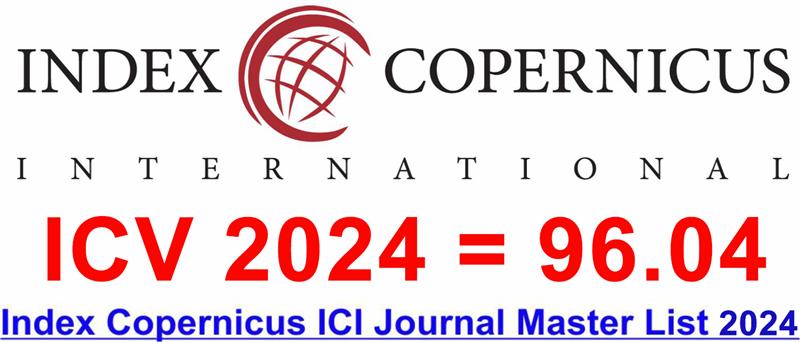Analyzing the Non-Functional Features of Web Conferencing Tools for Synchronous Online Tertiary Education in Sri Lanka
DOI:
https://doi.org/10.60072/ijeissah.2024v.3i01.003Abstract
A selection of a web conferencing tool often focuses on functional requirements. However, nonfunctional requirements play a critical role in ensuring the overall effectiveness and usability of a tool, especially for developing countries like Sri Lanka. This study aims to provide a detail discussion on the nonfunctional requirements discovered in a previous study on “Expert opinion on selecting a web conferencing tool for synchronous online tertiary education in Sri Lanka.” The study conducted semi-structured interviews with twenty selected experts, including educational specialists, educational psychologists, and IT specialists who are directly in touch with the online tertiary education sector of the country. The data is analysed using a thematic analysis approach to identify the sub-factors attributed to each non-functional requirement and content analysis to quantify the identified sub-factors. The findings revealed a total of 66 subfactors across nine key categories: pricing, compatibility, performance, security, user-friendliness, customer support, user training and setting standards, admin functionality, and value-added services. The study provides a comprehensive overview of the non-functional requirements essential for web conferencing tools to be effective in the Sri Lankan context, where internet connectivity can be unreliable, devices may be limited, and cultural sensitivities need to be considered. The findings of the study can be used by educational institutions in Sri Lanka to make informed decisions about the selection of web conferencing tools and to ensure a robust synchronous online learning environment for teachers and students by minimising the limitations of being a developing country.
Keywords:
Content Analysis, Non-Functional Requirements, Synchronous Online Education, Thematic Analysis, Web Conferencing ToolsReferences
De Alwis, D. (2022, March 22). Energy crisis hits online education, school-leaving exams. University World News.
https://www.universityworldnews.com/post.php?story=20220323152917725
De Zoysa, R. L., Mohomad, L. A., & Abeygunawardane, R. (2023). Expert Opinion on Selecting a Web Conferencing Tool for Synchronous Online Tertiary Education in Sri Lanka. International Journal of Advanced Research in Education and Society, 5(3), 459-471. DOI: https://doi.org/10.55057/ijares.2023.5.3.42
Gorbachenko, P. (2021, April 9). Functional vs Non-Functional Requirements [Updated 2021]. Enkonix.com. https://enkonix.com/blog/functional-requirements-vs-non-functional/
Hayashi, R., Kaushalya, T., Hewagamage, K. P., Garcia, M., & Amaratunge, S. (2022). Sri Lanka: Progress and Remaining Challenges in Online Higher Education during the COVID-19 Pandemic. DOI: http://dx.doi.org/10.22617/BRF220220-2
Hayashi, R., Garcia, M., Maddawin, A., & Hewagamage, K. P. (2020). Online learning in Sri Lanka’s higher education institutions during the CO VID-19 pandemic. DOI: http://dx.doi.org/10.22617/BRF200260-2
Hettiarachchi, S., Damayanthi, B. W. R., Heenkenda, S., Dissanayake, D. M. S. L. B., Ranagalage, M., & Ananda, L. (2021). Student satisfaction with online learning during the COVID-19 pandemic: a study at state universities in Sri Lanka. Sustainability, 13(21), 11749. DOI: https://doi.org/10.3390/su132111749
Jayasinghe, U. (2022, March 30). Sri Lanka suffers long power cuts as currency shortage makes fuel scarce. Reuters. https://www.reuters.com/world/asia-pacific/sri-lanka-suffers-long-power-cuts-lacks-foreign-currency-import-fuel-2022-03-30/
Khashunika, J. A. L., Yatigammana, M. R. K. N., & Lakmal, K. G. P. (2021). Challenges and opportunities in online education in Sri Lanka during the Covid-19 pandemic: Evidence from the university of Kelaniya. International Journal of Educational Research & Social Sciences, 2(4), 832-849. DOI: https://doi.org/10.51601/ijersc.v2i4.143
Madhuwanthi, L. A. P., Muthulingam, A., & Madusha, M. G. H. (2021). Paradigm shift for online learning: Voices of undergraduates from a National University in Sri Lanka. International Journal of Education, Teaching, and Social Sciences, 1(1), 8-20. DOI: https://doi.org/10.47747/ijets.v1i1.429
Mathrani, A., Sarvesh, T., & Umer, R. (2022). Digital divide framework: online learning in developing countries during the COVID-19 lockdown. Globalisation, Societies and Education, 20(5), 625-640. DOI: https://doi.org/10.1080/14767724.2021.1981253
Senevirathne, A., Sivalogathasan, V., Gunasekara, R., & Nisansala, W. (2021). Review of the prevailing trends in online learning amidst the Covid-19 pandemic: empirical study of the higher education sector in Sri Lanka. Full Papers of the, 453.
Raturi, S. (2014, December). Online tools in elearning in the context of developing Countries: A study at the university of the South Pacific. In 2014 IEEE international conference on MOOC, innovation and technology in Education (MITE) (pp. 112-117). IEEE. DOI: https://doi.org/10.1109/mite.2014.7020252
Sife, A., Lwoga, E., & Sanga, C. (2007). New technologies for teaching and learning: Challenges for higher learning institutions in developing countries. International journal of education and development using ICT, 3(2), 57-67. https://www.learntechlib.org/p/42360/
Udayanga, L., Subashini, N., Kuruppu, V., Liyanaarachchi, U., & Herath, A. (2021). Role of E-Learning for Teaching and Learning in the Higher Education Sector of Sri Lanka under Crisis Situations: A Review on the Challenges, Future Potential and Way Forward. App Biosyst Technol, 1(2), 43-54. https://www.researchgate.net/publication/362060981_Role_of_E-Learning_for_Teaching_and_Learning_in_the_Higher_Education_Sector_of_Sri_Lanka_under_Crisis_Situations_A_Review_on_the_Challenges_Future_Potential_and_Way_Forward
World Bank (2021). The World Bank in Sri Lanka. [online] World Bank. Available at: https://www.worldbank.org/en/country/srilanka/overview.
Yang, D., Tang, Y. M., Hayashi, R., Ra, S., & Lim, C. P. (2022). Supporting inclusive online higher education in developing countries: Lessons learnt from Sri Lanka’s university closure. Education Sciences, 12(7), 494. DOI: https://doi.org/10.3390/educsci12070494
























